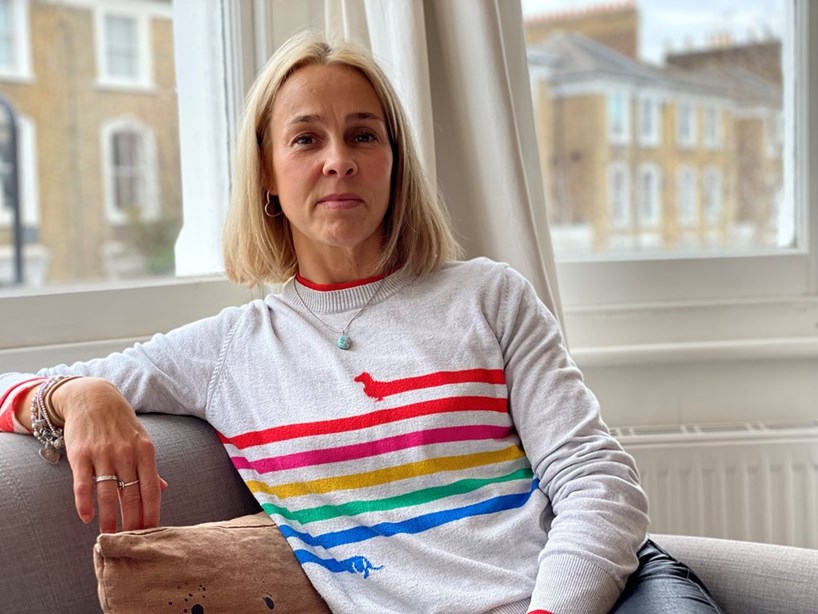SURVIVORS of abuse in the Jesus Fellowship/Jesus Army — described by its trustees as “widespread and systemic” — were the focus of a new BBC documentary on the sect, broadcast on Sunday evening.
Among those who spoke to the makers of Inside the Cult of the Jesus Army was Philippa Barnes, whose family joined the organisation in 1984 when she was six years old. She went on to found the Jesus Fellowship Survivors Association. She described her decision, aged 17, to inform the police about the abuse of her friend and to testify in court — despite the elders of the church praying against her — as “an abomination”.
Her friend had tried to take her own life. Most of her peers were abused, she told the filmmakers. At the age of seven, after drawing a stick figure with genitals, she was deemed to have an “unclean spirit”.
Magsy’s mother, Jane, had joined the Jesus Fellowship to escape the “stigma” of being a single mother and had been drawn to the idea of “living as the early Christians did”, she said. Magsy recalled being “rodded” daily from the age of two, accused of “defiance”. Crisps, sweets, packed lunches, and fashionable clothes were denounced as “worldly” and “inviting the devil in”.
Sarah’s parents had both died by the time she joined the Jesus Army at the age of 17. She was abused by an elder, she said. Abigail was 14 when she was sexually assaulted, the programme reported, and Nathan was abused as a child by a single man in his forties, who, the police discovered, had committed sexual offences previously.
The Jesus Fellowship was founded by Noel Stanton, a Baptist lay pastor, in Bugbrooke, Northamptonshire, in 1969. Over 50 years, the documentary recounted, it amassed “millions of pounds and thousands of converts”.
An earlier film, made in 1974 — The Lord took hold of Bugbrooke — described how a “local group of unorthodox Christians” had caused concern in the village. A television review in the Church Times described young people “convinced that their lives have been changed through the Holy Spirit” (28 June 1974).
 BBC/ELLENA WOODSarah, a survivor, talks to the BBC
BBC/ELLENA WOODSarah, a survivor, talks to the BBC
Throughout the BBC documentary shown on Sunday, clips were shown of Charismatic worship and prayer ministry; Stanton was shown pronouncing “You must bring yourself to a new commitment and you shall know what it is to be on fire for your Lord” and “Now we give our genitals to Jesus.”
In 1974, a new residential religious community formed with about 60 members, who bought a farm and several large properties in Bugbrooke. Led by all-male elders under Stanton’s leadership, it was the UK’s largest “intentional Christian community” by 1984, with 600 members.
In 1986, both the Evangelical Alliance (EA) and the Baptist Union severed their links with it.
In 1997, the EA spoke of “the unwillingness of the Jesus Fellowship to work in cooperation with other local churches” (News, 31 January 1997). Ian Howarth, of the Cult Information Centre, spoke of his concerns to the Church Times. Celibacy was encouraged; Stanton preached that married couples should sleep in separate beds.
A former member of the community, John, described to the BBC memories of a room-mate, Stephen, whose habit of reading had been met with disapproval. In 1978, Stephen was found dead on a railway line near by. He was 19. The coroner who looked at the case had earlier ruled on the death of David Gavin Hooper, a 26-year-old member found dead in a field on the fellowship’s property. Exposure was put down as the cause of death.
In 1987, the Fellowship launched a new campaigning arm: the Jesus Army. The BBC documentary featured a clip of the then Archdeacon of Northampton, the Ven. Bazil Marsh, who expressed concern: “I do see a cult and a closed cult which exists for itself. . . Frankly it disgusts me. These Rambo jackets. The uniform they have chosen is the uniform of force.” By the early 2000s, it had almost 3000 members.
Stanton died in 2009. A Guardian feature published last week, drawing on the documentary and featuring an interview with Ms Barnes, records that, in 2010, a volunteer gardener described by a judge as a “relentless paedophile” was found guilty of indecent assault against three young boys while living in the fellowship in the late 1990s. “He had previous child sexual-abuse convictions, and it became clear in the course of the investigation that the fellowship had not been conducting proper background checks.”
In 2013, the company that insured the Fellowship and its businesses requested that the leadership ask its members for stories of abuse. In 2014, the police received two safeguarding referrals concerning the organisation. At a meeting with the Fellowship’s leadership, the police were given a file containing 133 responses sent in by members, which included allegations of serial sexual abuse.
 BBC/JOHN ANGERSONBBC/JOHN ANGERSON
BBC/JOHN ANGERSONBBC/JOHN ANGERSON
In 2015, Northamptonshire Police launched Operation Lifeboat. It led to the convictions of five members, two of whom went to prison.
In 2017, Ms Barnes created a Facebook group, which, she told the documentary, “opened the floodgates”. It led to the formation of the Jesus Fellowship Survivors Association, which was advised by a solicitor to seek redress.
In 2018, the Fellowship was estimated to be worth £58 million. A year later, its leadership decided to close the Fellowship down, and, in 2022, the trustees of the Jesus Fellowship Community Trust — established to dissolve the organisation and its assets — announced a compensation scheme for survivors of abuse (News, 30 September 2022).
The scheme closed on 31 December 2023. Of the 601 applicants, 96 per cent received an award of financial or non-financial redress. The final report of the scheme concluded that harm and abuse of individuals was “widespread and systemic” (News, 20 September 2024).
It is estimated that one in six children who lived in the community were sexually abused. A total of 539 alleged perpetrators of physical sexual and emotional abuse were identified, including Stanton himself — an alleged child abuser.
The BBC documentary showed some of the survivors attending sessions led by a psychotherapist, Gillie Jenkinson, who was once in a religious cult herself.
Nathan told the group: “I still believe I am going to hell.” Sarah, who was shown untangling ivy to symbolise release from oppression, reflected: “I’ve been on another planet for 13 years. . . I don’t exist. I’m not there.”
A statement to the documentary-makers from “The Apostolic Five” — the elders who served as the Fellowship’s leadership — said: “We continue to hold out an unreserved apology to anyone who has been affected by abuse and failings of any kind in Jesus Fellowship.”
One former senior leader, close to tears and convinced, given the low number of convictions, that the abuse was not institutional, spoke of his realisation that he must believe survivors.
















